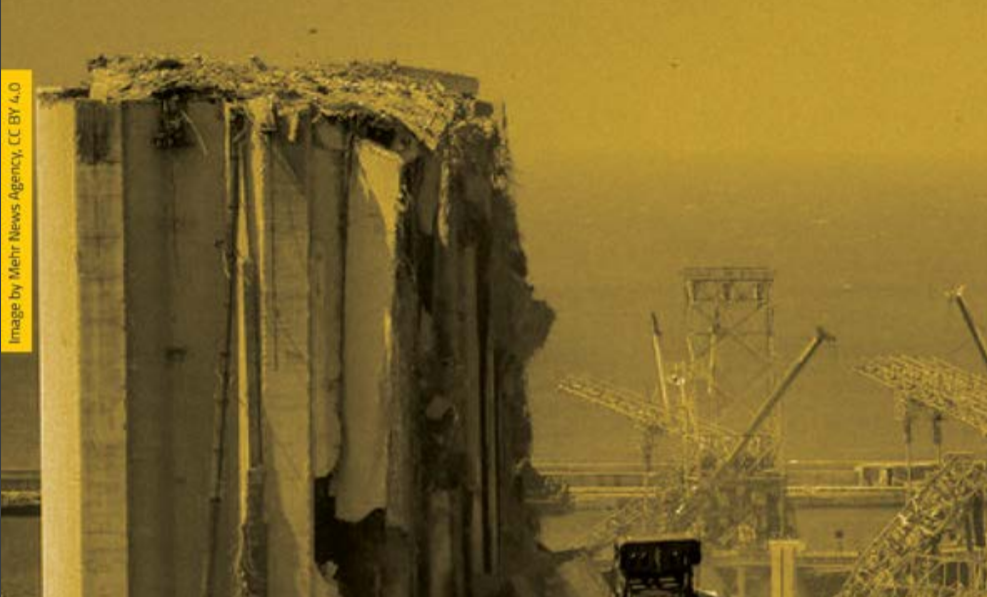December 2020
More than four months after the Beirut blast, its effects still ravage Lebanon. The blast left 178 people dead, more than 6,500 wounded and thousands displaced. It damaged about 40,000 buildings, of which 3,000 residential buildings were severely damaged and resulted in the destruction of most of the port beside the levelling of the neighborhoods with the ground. Three hospitals in Beirut were disrupted as a result of the explosion, along with two other hospitals that were partially damaged, leaving a serious gap in the hospitals’ bed capacity. Moreover, at least two thousand doctors were injured, or their clinics got destroyed. About 300,000 people were left homeless as winter approaches. Added to this is the great damage that affected the infrastructure, the electricity and the water networks. Initial estimates indicate that up to 10,000 vulnerable families may be severely affected by the blast and need urgent support.
Moreover, more than 70 thousand workers are believed to be unemployed due to the explosions, in addition to 220 thousand workers who lost their jobs as a result of the financial crisis that started in October last year.
This blast accompanied the worsening economic situation in Lebanon, which is going through the worst economic crisis in its history, as well as the ill effects of the novel Coronavirus pandemic. Unemployment rates are also on the rise, accompanied by a depreciation of the currency, a fall in the value of salaries, and the rise of food prices. The World Bank indicates that one million Lebanese live below the poverty line, and statistics indicated that 50% of the Lebanese are concerned about securing food. The International Support Group for Lebanon announced its solidarity with the Lebanese people. Consequently, the International Conference on Assistance and Support to Beirut and the Lebanese People was held on 9th August 2020. It was organized under the chairmanship of the United Nations and France and was able to mobilize the efforts of the international community. The United Nations also launched a humanitarian appeal aimed at raising 565 million USD to help Lebanon transition from immediate, life-saving humanitarian relief towards recovery and reconstruction including repair of the shattered economy in the longer term. The focus will be on helping those in need through achieving food security, damaged health facilities rehabilitation, providing trauma treatment kits and basic medicines, in addition to providing shelter, by providing cash for shelter for families whose homes were damaged. It will also fund the repair of buildings and facilities that were damaged by the explosion, in addition to supporting water cleanliness and sewage. Within this abnormal context, which can be described as catastrophic, Lebanon is one of the most refugee-hosting countries in the world in terms of population ratio, as there are more than 900 thousand registered refugees from Syria and other countries on its territory, in addition to Palestinian refugees, out of a total population of fewer than 7 million people.
Reportedly, at least 34 Syrian refugees were killed in the Beirut blast. Another 124 refugees have been hurt, 20 of them suffering serious injuries. The Lebanese Ministry of Public Health had published a list of the names of the victims, which included Syrians. Similarly, the Syrian embassy announced the death of 43 Syrian citizens in the port explosion, in non-final numbers that have not yet been updated. Damage to refugees ranged from loss of life to serious and normal injuries in addition to other damages to homes, personal items, identity papers, and others. However, the effect of the explosion was double on the Syrian refugees who were already suffering poor living conditions before the explosion. The permanent practices of the Lebanese state in violating the rights of refugees were present in dealing with the Syrian refugees’ victims of the explosion. In this regard, this paper aims to frame the challenges that faced the Syrian refugees affected by the explosion and to highlight the role of the Syrian organizations which were among the first to provide aid.
Skip to PDF content




